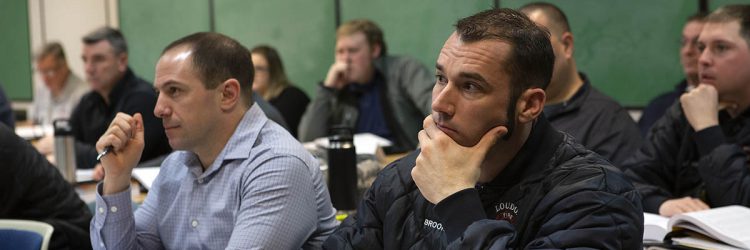
- This event has passed.
Emergency Medical Responder
September 17, 2022 @ 8:00 AM - January 7, 2023 @ 5:00 PM
Description
From the Course Catalog
Emergency Medical Responders provide immediate lifesaving care to critical patients who access the emergency medical services system. EMRs have the knowledge and skills necessary to provide immediate lifesaving interventions while awaiting additional EMS resources to arrive. EMRs also provide assistance to higher-level personnel at the scene of emergencies and during transport. Emergency Medical Responders are a vital part of the comprehensive EMS response. Under medical oversight, Emergency Medical Responders perform basic interventions with minimal equipment. The Emergency Medical Responder (EMR) is an out-of-hospital practitioner whose primary focus is to initiate immediate lifesaving patient care while ensuring access to the emergency medical services system. EMRs possess the basic knowledge and skills necessary to provide lifesaving interventions while awaiting additional EMS response and rely on an EMS or public safety agency or larger scene response that includes other higher-level medical personnel. When practicing in less populated areas, EMRs may have a low call volume coupled with being the only care personnel for prolonged periods awaiting the arrival of higher levels of care. EMRs may assist but should not be the highest level person caring for a patient during ambulance transport. EMRs are often the first to arrive on the scene. They must quickly assess patient needs, initiate treatment, and request additional resources.
- Function as part of a comprehensive EMS response, community, health, or public safety system with clinical protocols and medical oversight.
- Perform basic interventions with minimal equipment to manage life threats, medical, and psychological needs with minimal resources until other personnel can arrive.
- Are an important link within the 9-1-1 and emergency medical services systems.
Registration
Registration is only permitted within the defined registration window. Prerequisites must be met at the time of registration. Applicants will be notified within two business days with the status of their applications. Courses where pricing is listed as "grant funded" covers course tuition only. Overtime/backfill eligible courses will be specifically noted.
Registration Opens: Friday August 19, 2022 @ 09:10 Registration Closes: Monday September 12, 2022 @ 16:00



